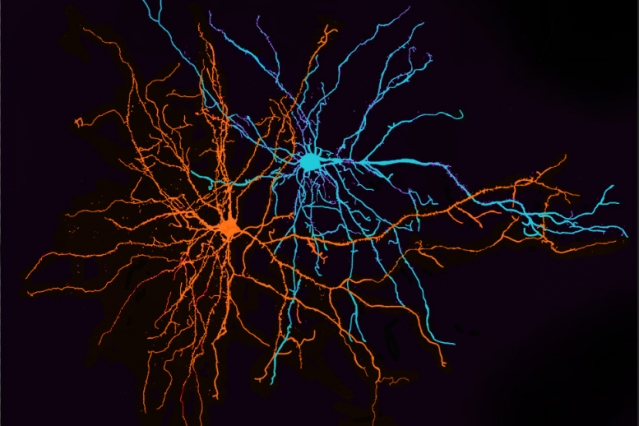
Recommended
Dr. Kay Tye ’03 has always been curious about the mind. She often asks the question: “Why do we feel how we feel?” Her answers are not solely philosophical, but instead are embedded in her lab’s expanding neurological research. Tye doesn’t just want to know how we feel, but instead wants to know “what are the neural mechanisms behind emotions?” She and her team are uncovering new connections between brain neurons and human sensation, and these discoveries are making emotions a little less mysterious.
Tye took her first introduction to psychology course at MIT and found it insightful yet slightly unsatisfying. “The course was all theories,” she says “There was no way to determine who was right and who was wrong.” She wanted more. Her curiosity led her to research how environmental stimuli are assigned emotions. Similar to her desire to know what was right and wrong, Tye wanted to know how humans determine if something is good or bad.
In the Tye Laboratory, made up of about 20 people and housed in the Picower Institute for Learning & Memory, research surrounding the neural mechanisms behind emotions span a broad spectrum of human experiences.. Tye gave the example of the feeling of hunger. She explains that “we eat because we are hungry or we eat because food tastes good.” Tye is interested in what is happening, neurologically, in either of these states. How do these two states inform other states of being like loneliness or isolation? Often this dichotomy translates to how emotions fall into two motivations: seeking pleasure or avoiding pain. “I find it exciting when you can find a neurological basis for a psychological concept,” she says.

Tye sees her work as a platform for a changing mental health landscape in the years to come. “The primary goal for us is to develop an understanding of the brain in order to create a paradigm shift in mental health treatment,” she says. She hopes that “instead of using a symptom-based approach to mental health, we will be able to describe a pathology to find what neurocircuit underlines specific psychiatric states.”
With research that is so invested in human emotion, it is no wonder that Tye describes her work as exciting and personal. Her commitment to discovering why is hopefully bringing more clarity to the more complex feelings that humans experience. “It is my responsibility to share this research with the world” she says.
Watch an in-depth video about processing of emotions below:
[embed]https://www.youtube.com/watch?v=kOJx8tYlbGo&list=PLABvh_IMOr_ldnpeSH6pdcypNeBmgFU3c[/embed]







